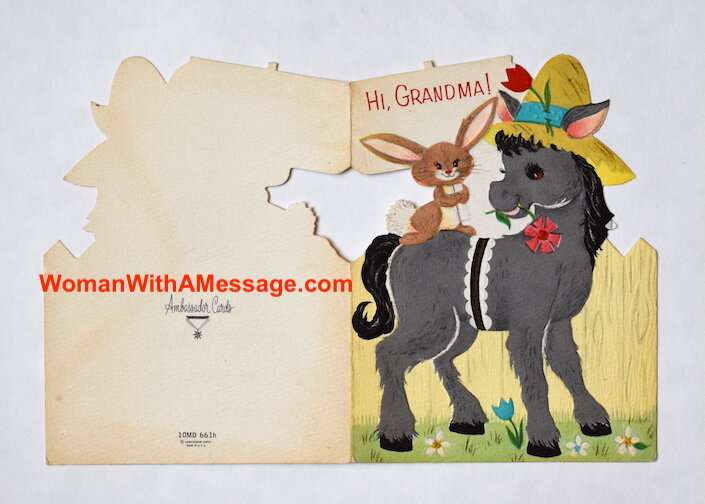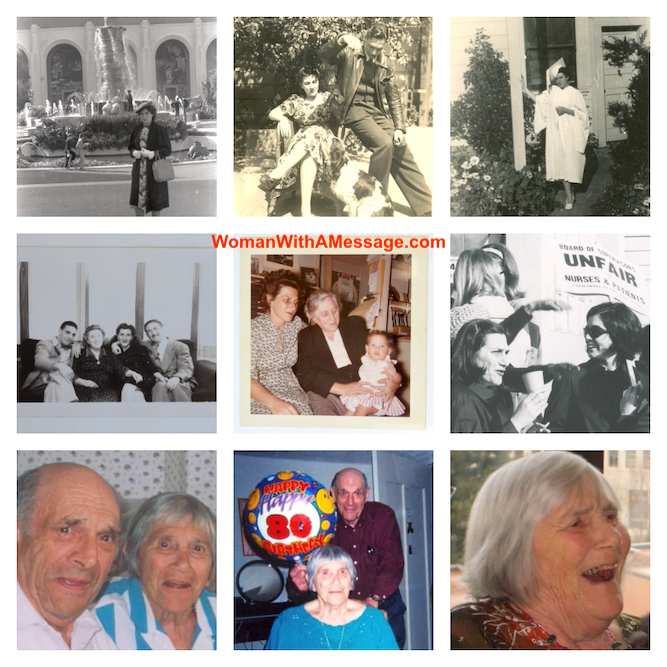21. March 1940.
Dear Fritz and dear Hanne!
After almost 2 months your letter from January 24th arrived. You were at that point still without any mail from me. I got your first card and an earlier letter which was forwarded on to me from Arthur Schiller and I answered those shortly after getting them. In case my answer was lost, I will, before I go into what your last letter said, repeat the content of that one in brief.
After I had expressed my joy at the end of your journey and the long and even longer period of uncertainty, which was very nerve-wracking for all of us, and expressed my hope that you would get used to your new situation soon and smoothly, I told about myself. First, I unfortunately had to deny the news that you’d gotten from somewhere (from where?) that I had already found a job. As proof, I mentioned that after six months of futile attempts to find work and be able to support myself, I had moved from New York to San Francisco to stay with the parents of the person who gave an affidavit for me in order to save money on food and lodging. Then I reported about the Stopford matter. Since common fortune to the extent that it could be made liquid had already been doled out to us, your portion of the foreign accounts was already sent on to you by Robert. And since the rest was invested in securities and are frozen and secondly really belong to the bank to cover our loan and probably don’t entirely cover it either. Otto got the approved amount of £200 in my name with Robert’s money (a service handled by Stein), he got this for an exchange rate and had transferred it to me in New York right when the pound was at its lowest. I kept as much of this money as I was entitled to after my private settlement with Robert. Robert’s private debt to me had been reduced by my costs for food and lodging in Prague. This money I used up both here and in New York - all I really have anymore is an emergency reserve. How much Robert has of his part of this which I had transferred to him in London is not known to me. You know perhaps directly from him or from the Schauer girls that he has no job, and he is not doing very well with his stomach or his teeth (or he was); I really don’t know the details. Every letter says he’s doing better, but you can also see that he wasn’t doing that well at the time of the last letter. In any case, he had to have all of his teeth removed and dentures made and he has to follow a strict diet (or at least he’s supposed to!).
The other stuff I wrote is pretty much out of date so I’ll go to the present now. I am concerned that you have not yet been able to earn enough money and that Hanne on top of all that is suffering from gallstones. I really cannot help you with a sufficient sum of money as you see from what I've told you before and what I will be telling you in a moment, but in consultation with Robert who told me about your unfortunate situation in his letter and in both of his names because he still has a settlement to make with me, I am sending you the enclosed check drawn on the Bank of America here, #133965, for $60U.S. to the Ottoman Bank in Haifa. (The check is made out to “Frederick Orlik” so you will have to cash it that way. I hope you will not have any modesty about that.) According to today’s exchange rate, that may be a bit more than 16 English pounds. It’s not much, but we wish to send you a little bit to help with Hanne’s health, or if her health is already restored to her, then you can keep it for your household. Take it as intended. It is less than we would wish, but is unfortunately all that we can give you.
Otherwise, we will have to comfort ourselves that as we know from experience, all immigrants spend many months and sometimes years to manage to get a decent income no matter where fate has sent them. For myself, I do not want to complain much because San Francisco is a splendid city with a magical climate, tranquilly living well-mannered kind of people live here who even show some interest in art and music and have no hatred of Jews, unlike in New York. But a regular job is something one cannot find and so I have taken on the career of a piano teacher and accompanist. I earn a little more than my furnished room costs me, which I felt prompted to do because I think I was bothering the older Schiller married couple. (For mail however, nevertheless you should still use my address: 731-Eleventh Avenue. - that’s the best way to reach me.) With the help of the many invitations, I can pretty much make it financially and I hope I do not have to make any more use of the bank account which has pretty much shrunk to an iron reserve which is not even enough to buy anything with. But if I’m lucky, the number of my students will increase. I have plenty of company and through the help of all my relatives and my own promotional activities, since the 1st of February - the day on which I started my new activity - I have gained five students. But you see, although I am speaking relatively of luck, it has taken nine months to do this, to get to earn my first dollars. And many others are doing just the same. So don’t give up; it will happen.
Now I want to report what I know about our relatives. Mother wrote on February 10th from Podebrad that she hasn’t had any mail from you for months and that she has only heard indirectly that you are staying with Fritz P and that you are looking for a way to make a living. She is somewhat comforted in her own comings and goings because she has the Schauers and Marianna. The pension question has been solved to her advantage, as far as I know. There has been a huge number of letters in both directions which have been lost, and so I can do more with the help of my fantasy than with concrete reports, but I do think that she is really suffering from the lack of mail. Robert’s letters are getting lost too, and vice versa. Since he does have mail from you, I assume that you are in touch. His address in any case is “Heston” West Kilbride, Ayrshire, Scotland. He is near Anny and Doris, and you probably have a letter from them.
The huge distances and the war and the losses of letters associated with it make it quite impossible to keep correspondence going in all directions. I write as much and as well as I can and I am happy when I hear at least a sign of life from you. I hope to hear from you soon and through you, about the others.
I wish you all the best from the bottom of my heart.
Your
Paul
I have also received a copy of the letter you mentioned which was written from Mother to Robert on the 5th of November, and I don’t really know what they are talking about either.












































